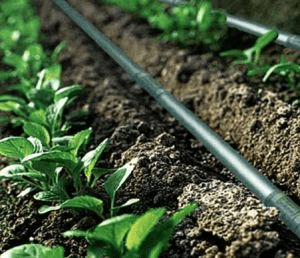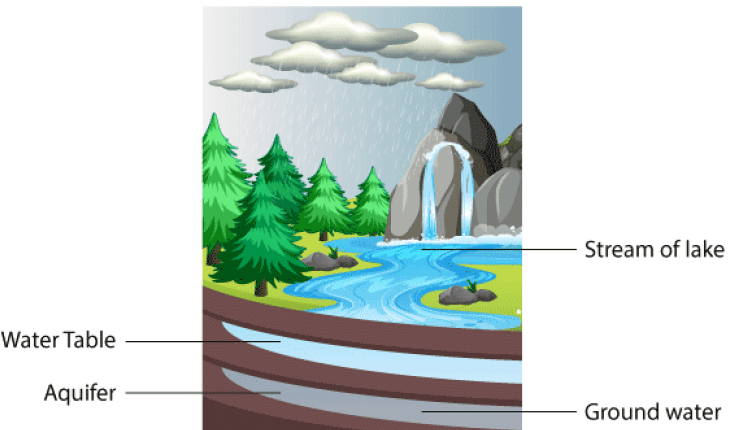NCERT Solutions for Class 8 Science - Water - A Precious Resource
Q.1. Mark ‘True’ if the statement is true and ‘False’ if it is false:
(a) The freshwater stored in the ground is much more than that present in the rivers and lakes of the world.
Ans. True
(b) Water shortage is a problem faced only by people living in rural areas.
Ans. False
(c) Water from rivers is the only source for irrigation in the fields.
Ans. False
(d) Rain is the ultimate source of water.
Ans. True
Q.2. Explain how groundwater is recharged?
Ans. The rainwater and water from other sources such as rivers and ponds seeps through the soil and fills the empty spaces and cracks deep below the ground. The process of seeping of water into the ground is called infiltration. The groundwater thus gets recharged by this process.
Q.3. There are ten tube wells in a lane of fifty houses. What could be the long term impact on the water table?
Ans. If ten tube-wells in a lane of fifty houses are situated, the groundwater will get used for the domestic purpose. This results in depletion of groundwater level and water table would go down.
Q.4. You have been asked to maintain a garden. How will you minimize the use of water?
Ans. We can reduce the usage of water for gardening by adopting drip irrigation method. In this method, water will reach the roots of the plant drop by drop, which will reduce the wastage of water.
Drip Irrigation
Q.5. Explain the factors responsible for the depletion of water table.
Ans. Factors responsible for the depletion of the water table are as follows
(i) Increase in population: Increase in population leads to increased demand for water for domestic and drinking purpose. This reduces the water table.
(ii) Industrialisation: Industries need lot of water for manufacturing purposes. This reduces the water table.
(iii) Agriculture: Agriculture requires a lot of water for growing crops; this results in depletion of water table.
Q.6. Fill in the blanks with the appropriate answers:
(a) People obtain groundwater through ______ and ______.
Ans. Wells and tube-wells
(b) Three forms of water are ______, ______ and ______.
Ans. Ice, water and vapor
(c) The water-bearing layer of the earth is ______.
Ans. Hydrosphere
(d) The process of water seepage into the ground is called ______.
Ans. Infiltration
Q.7. Which one of the following is not responsible for water shortage?
(i) The rapid growth of industries
(ii) Increasing population
(iii) Heavy rainfall
(iv) Mismanagement of water resources
Ans. (iii) Heavy rainfall
Q.8. Choose the correct option. The total water
(i) In the lakes and rivers of the world remains constant.
(ii) Under the ground remains constant.
(iii) In the seas and oceans of the world remains constant.
(iv) Of the world remains constant.
Ans. (iv) Of the world remains constant
Q.9. Make a sketch showing groundwater and water table. Label it.
Ans. 
FAQs on NCERT Solutions for Class 8 Science - Water - A Precious Resource
| 1. What is water scarcity? |  |
| 2. How can we conserve water? |  |
| 3. What are the effects of water pollution? |  |
| 4. Why is water conservation important? |  |
| 5. What are the benefits of rainwater harvesting? |  |



















